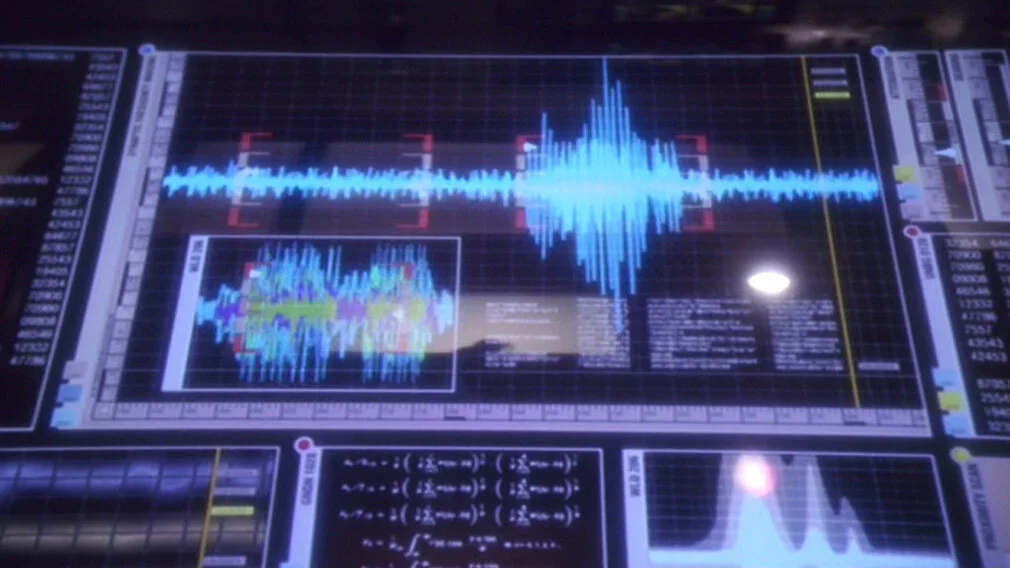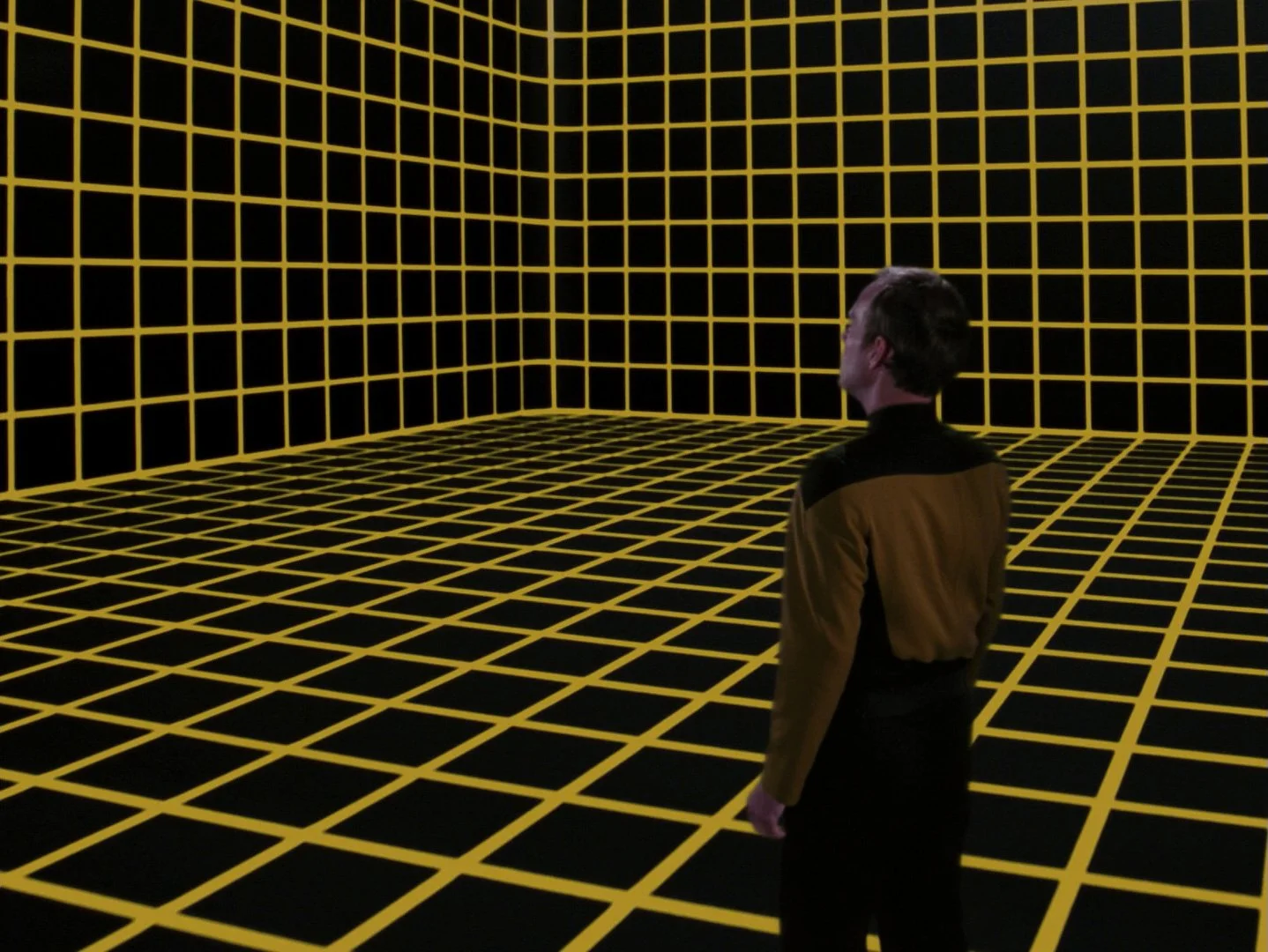Latin Star Trek Episode Titles Explained
Across the various Star Trek television series, from Star Trek: The Next Generation onward, there have been several Latin episode titles. I thought it would be fun and useful, for those fellow Star Trek fans who are philosophically and linguistically inclined, to put together a list of all of the various Latin Star Trek episode titles, their translations into English, and a brief explanation of their meanings as they relate to philosophy and relate to the content of their respective episodes.
Latin Episode Titles in Star Trek: The Next Generation
Sub Rosa (Season 7, Episode 14)
The Latin phrase “Sub Rosa” means “under the rose.” The rose is a symbol of love, of secrecy, and an emblem of various secret societies such as the Rosicrucians. Something done sub rosa is done in secret. In the episode, Dr. Beverly Crusher’s maternal family line has a secret love history with an alien apparition, Ronin, who can take human form. Thus, the episode title “Sub Rosa” refers both to the romance of the film and to the Howard (Dr. Crusher’s maiden name) family secret, passed down from generation to generation upon the death of each maternal-line family matriarch.
Latin Episode Titles in Star Trek: Deep Space Nine
Dramatis Personae (Season 1, Episode 18)
The literal translation of the Latin phrase “dramatis personae” is “persons of the drama,” but colloquially dramatis personae is used to refer to the characters of a play, a novel, or a narrative. In the episode, a telepathic infection splits the crew into two factions fighting against each other, thus rendering them like avatars or characters in a drama against their will.
Inter Arma Enim Silent Leges (Season 7, Episode 16)
The Latin sentence “Inter arma enim silent leges.” is usually translated as “In times of war, the law falls silent,” although a slightly more literal translation is “For between weapons the laws are silent.” This Latin episode title is actually a rearrangement of the statement of Cicero, “Silent enim lēgēs inter arma,” in his public oration (speech) Pro Milone, on behalf of his friend Titus Annius Milo, who was accused of murdering a political enemy, Publius Clodius Pulcher, on the Appian Way in Ancient Rome. The phrase refers to the ineffectiveness of law when faced with war, or, in the case of Cicero’s speech in support of Titus Annius Milo, when faced with mob violence. The phrase is also sometimes used to justify actions done in the name of self-defense. In the episode, the actions of the secret Starfleet organization Section 31—a political assassination in this case—are depicted as being necessary in times of war.
Latin Episode Titles in Star Trek: Voyager
Ex Post Facto (Season 1, Episode 8)
The relatively common latin phrase “ex post facto” is usually translated as “after the fact.” In the episode, Lieutenant Tom Paris is wrongly convicted of the murder of an alien engineering physicist, Tolen Ren. As punishment, Tom Paris is forced to relive the victim’s last moments every 14 hours. The exact link between the episode title “Ex Post Facto” and the content of the episode is unclear, but it likely has to do with the fact that punishment comes after one is convicted of a crime, or the fact that Tom Paris is forced to relive the memory of the victim again and again “after the fact.”
Non Sequitur (Season 2, Episode 5)
The latin phrase “non sequitur” is usually translated as “it does not follow,” and it most commonly refers to a leap of logic on which a conclusion does not follow from the stated reasons or premises. The phrase “non sequitur” can also refer to a literary device in which one offers an irrelevant or humorous comment in response to a preceding topic or statement. In the episode, Ensign Harry Kim wakes up in an alternate timeline in 24th-century San Francisco instead of on Voyager stranded in the Delta Quadrant where he is supposed to be. Presumably the title “Non Sequitur” refers to the fact that Harry Kim’s morning in San Francisco does not follow logically from the day that came before.
Alter Ego (Season 3, episode 14)
The Latin phrase “alter ego” means “other self” or “another self”—literally “another I.” In the episode, a lonely alien female named “Marayna” is stuck aboard a spaceship maintaining a “nebula inversion,” which her race of people like to visit for aesthetic reasons. Out of loneliness, Marayna masquerades as a character—a beautiful blonde woman—in Neelix’s resort program on the holodeck. Marayna develops feelings for Voyager’s tactical officer and chief of security, ultimately threatening Voyager when Tuvok fails to return her affection. The episode title “Alter Ego,” then, refers to Marayna’s holodeck avatar, which she creates in attempt to overcome her social and romantic isolation on while stuck alone on her ship inside the nebula inversion.
Latin Episode Titles in Star Trek: Enterprise
Terra Nova (Season 1, Episode 6)
The Latin word “terra” can mean “land,” but it can also mean “Earth.” “Nova,” of course, means “new.” So the title “Terra Nova,” then, means “New Land” or “New Earth”—presumably “New Earth” since “Terra Nova,” in the episode, is the name of the first human deep-space colony on an extrasolar planet.
Vox Sola (Season 1, Episode 22)
The latin phrase “vox sola” means “lone voice” or “the voice alone.” The title of the episode may refer to the attempt to translate the language of the alien race, the Kreetassans. Or it may refer to the fact that the amoeba-like life forms depicted in the episode are eventually reabsorbed into a single, large alien life form—thus they are unified and speak with one voice.
Terra Prime (Season 4, Episode 21)
Strictly speaking, the title “Terra Prime” is a Latin/English hybrid, with “terra” being Latin for “Earth” and “prime” being an English word for “first.” A fully Latin version of this title would be “Terra Prima,” which could be translated as “Earth First.” In the episode, “Terra Prime” is the name of a xenophobic Earth isolationist group that is committing acts of terrorism against Starfleet Command in an attempt to secure the expulsion of all non-humans from Earth. In the Star Trek universe, our solar system is commonly referred to as the “Terran System.”
Latin Episode Titles in Star Trek: Discovery
Si Vis Pacem, Para Bellum (Season 1, Episode 8)
The Latin sentence “Si Vis Pacem, Para Bellum.” means “If you want peace, prepare for war.” It is a simplified version of a similar statement by the Late Roman author Publius Flavius Vegetius Renatus in his work De Re Militari (Concerning Military Matters), “Igitur qui desiderat pacem, praeparet bellum.” ("Therefore let him who desires peace get ready for war."). In the episode, the Federation is on the brink of war with the Klingon Empire. The title refers to the tension between holding on to the ideal of peace in times of war, or under threat of war. The title also implies that militarism can itself be a tool for peace, a sentiment reminiscent of the Cold War between the United States and the Soviet Union, and the arms race it spawned, in the latter half of the 20th century.
Latin Episode Titles in Star Trek: Picard
Et in Arcadia Ego (Season 1, Episodes 9 & 10)
The Latin sentence “Et in Arcadia ego.” can be translated as “And I am in Arcadia.” In Greek mythology Arcadia was a virgin wilderness that was home to the god of the forest (Pan) and his court of dryads, nymphs, and other spirits of nature. It was depicted as a type of earthly paradise. The Eclogues, a series of poems by the Roman poet Virgil, are set in Arcadia as well. Arcadia thus refers to a utopian vision of pastoralism and harmony with nature.
“Arcadia” in this episode’s title may refer to the false memories the character of Soji—a synthetic human life form or “synth”—has of her early life. Or, more likely, it may refer to the relatively utopian synth homeworld, Coppelius, where synths live in harmony with one another until they come to believe that organic life forms, humans included, are a threat to their own existence and therefore that they must be destroyed with the help of unnamed higher beings, presumably from another dimension (although this isn’t made clear in the episode). These higher beings themselves could plausibly be seen as analogues for the Greek gods and demigods residing in Arcadia in Greek mythology.
“Et in Arcadia ego” is also the title of a painting by the 17th-century Italian artist Giovanni Francesco Barbieri (Guercino). In the painting, two young shepherds are staring at a decaying skull atop a pillar with the titular inscription “ET IN ARCADIA EGO,” which here means something more like “I, too, am in Arcadia (paradise).” The painting depicts a classical Roman memento mori (reminder of death) in the form of a skull, and invokes the Greek and Roman stoic wisdom that death is to be embraced, not feared.
Here is the painting in question:
“Et in Arcadia ego” by Giovanni Francesco Barbieri (Guercino)
























